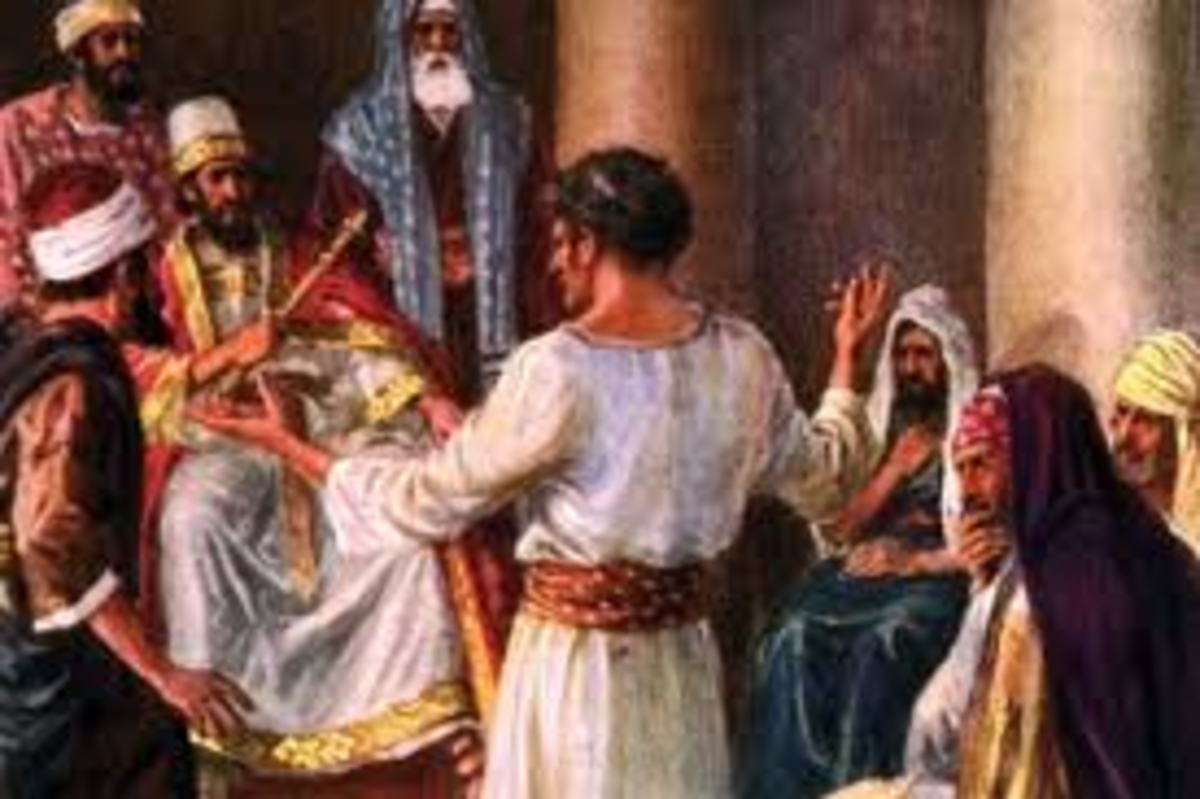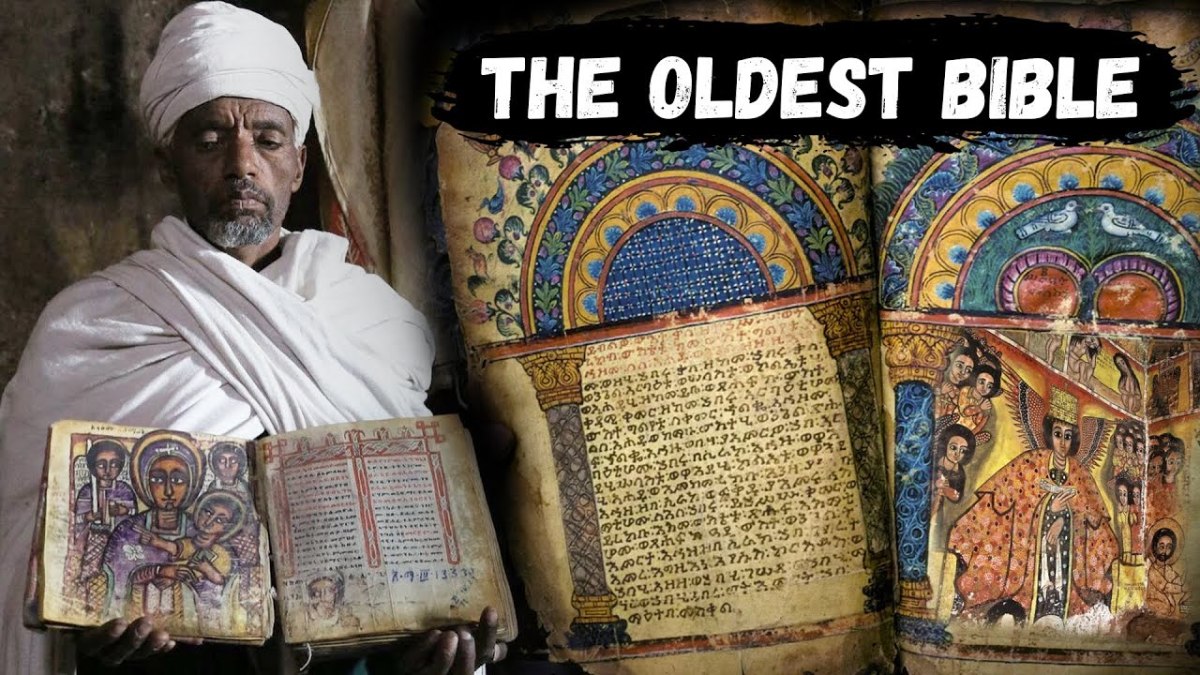Bible: What Does Jeremiah 37-39 Teach Us About Nebuchadnezzar and the Babylonian Conquest?
Jeremiah in Prison
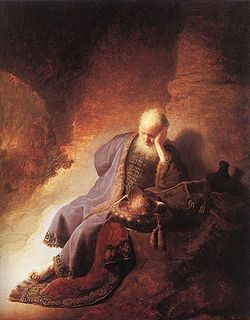
Imprisonment
view quiz statisticsEgypt Cannot Help You/Jeremiah Imprisoned
Jeremiah 37
Nebuchadnezzar replaces Jehoiachin with Zedekiah (v. 1; cf. 2 Kings 24:17), but everyone in Jerusalem/Judah continues to ignore God's word (v. 2).
Nevertheless, the king asks Jeremiah through intermediaries to pray for Egyptian deliverance (vv. 3, 7).
[The prophet had not yet been imprisoned (v. 4)].
A turn of events—Egypt's advance and Babylon's retreat—momentarily lifts Zedekiah's hopes of salvation (v. 5).
But the LORD through Jeremiah quickly dissolves those dreams, foretelling the return of the Egyptians to their home (vv. 6-7), and Babylon's invasion and inevitable conquest of the city.
“Even if only a few Chaldeans remained at the end of the battle,” God says, “Babylon would still accomplish My word of destruction” (vv. 8-10).
While the Egyptian army protects the city and Babylon postpones its siege, Jeremiah decides to claim his property in Benjamin (vv. 11-12; see Jer. 32).
But as he enters the gate of Benjamin, officials arrest and imprison him, charging him with defection (vv. 13-15).
After many days, Zedekiah calls the prophet to his court to hear if God's mind has changed, but Jeremiah predictably disappoints him (vv. 16-17).
Objecting to his false imprisonment, Jeremiah questions Zedekiah why he inquires of him concerning what is on the LORD's mind, and not of his own fair-weather prophets (vv. 18-19).
He then requests release from the dungeon—a plea that the king grants, yet not without restrictions (vv. 20-21).
Middle Eastern Cistern
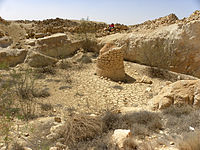
Release and Advice
Jeremiah 38
Four princes (vv. 1, 4) hear Jeremiah's message of surrender (vv. 2-3; cf. 21:9), and conspire to pressure Zedekiah to execute the prophet for treason (vv. 4-5).
The king, weak-willed as ever, submits to their evil design, leading to the prophet's abandonment in a miry dungeon (v. 6).
[This pit differs from the one in chapter 37. Here, it is Malchiah's; the earlier one was Jonathan's].
Providentially, the servant of the king (Ebed-Melech)—another Ethiopian eunuch (see Acts 8:26ff)—hears about Jeremiah's plight and, at the king's command, rescues the prophet from the pit with the help of thirty men (vv. 7-13).
[It seems rather strange that he should require thirty men to lift out one man, but that is what the text says. May it be a transcriptional error?]
The king's seesawing will happily sides with Jeremiah in the end.
[It also seems strange that the princes do not become aware of Ebed-Melech's rescue efforts and seek to thwart them.
Perhaps the thirty men served also as an armed company to insure the successful execution of this good deed].
Zedekiah suffers from a severe case of wishy-washiness, caused (as it usually is) by fear.
He is afraid that Jeremiah may be right, so he has him rescued and brought in for questioning (v. 14).
In secrecy, the king asks what he should do.
After getting assurances that he would not be killed, the man of God advises the king to surrender and live, and not to resist (vv. 15-18).
Zedekiah's pathology, however, then finds another object: the Jewish defectors (v. 19). Jeremiah assures him that all would be well if he would just surrender (v. 20).
On the other hand, if the king would not give up, then certain disaster would result (vv. 21-23).
Terrified now that the princes may learn of his private words with Jeremiah and conspire to assassinate him, Zedekiah instructs the prophet not to reveal the true contents of their conversation should these officials confront him (vv. 24-25).
Heeding the king's words, Jeremiah escapes out of their hands by repeating to them the king's fabrication (vv. 26-27).
The prophet remains in “the court of the prison” under the conquest of Jerusalem (v. 28).
Nebuchadnezzar
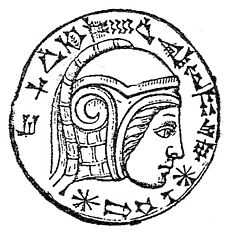
Jerusalem

Nebuchadnezzar Takes Jerusalem/God Rewards Ebed-Melech
Jeremiah 39
Verse one recounts Nebuchadnezzar's initial attack upon the city; 2 Kings 25:1 names the day on which it began.
Jeremiah also records the full date on which the invaders penetrated the wall and took the city (v. 2; see 2 Kings 25:2, 3).
It was certainly a day of infamy that would remain with the prophet for the rest of his life.
In addition, he remembers the procession of the Babylonian princes (with whom he probably became well-acquainted) to the Middle Gate—a rather pompous display by any measure (v. 3).
In the midst of this ostentation, Zedekiah makes a futile attempt to escape from Babylonian clutches (v. 4).
Jeremiah seems to have precise details of his plan, as if the king had discussed them with him beforehand.
But the prophet knew that any flight from captivity would fail.
[Ezekiel also records this episode in his prophecy; however, he composes it in story fashion with object lessons (cf. Ezekiel 12)].
The Punishment of the King of Judah
view quiz statisticsZedekiah's Fate
As God had forewarned the king that he would be delivered into the hand of the Babylonian, so it occurs (v. 5).
His punishment is terrible: first witnessing the death of his sons and nobles (v. 6), and then losing his own eyes through a most hideous method (v. 7).
Afterwards, Nebuchadnezzar orders the burning of the city, the dismantling of its walls, and the deportation of the remnant to Babylon (vv. 8-9).
Only the poor of Judah remain behind to tend the vineyards and fields under Babylonian control (v. 10).
As for Nebuchadnezzar's disposal of the prophet, the Babylonian charges Nebuzaradan, the captain of the guard, to treat him well (vv. 11-12).
Jeremiah returns home under the authority of some other officers; however, he is put in the custody of Gedaliah--a leader who would become governor of Judah (vv. 13-14).
The final four verses of this episode deal with the LORD's reward for Ebed-Melech, "the servant of the king" who rescued the prophet from death (vv. 15-18; see 38:7ff).
While Jeremiah remains confined in the court, he receives word from God to inform the eunuch that the LORD would deliver him from the coming calamity, because "you have put your trust in Me" (v. 18).
What a heartening message to meek ears!
© 2013 glynch1



